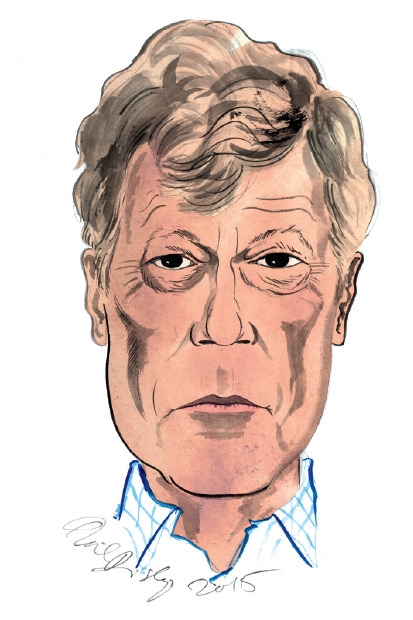To the extent that Britain has philosophers, we do not expect them to address issues of any relevance to the rest of us. They may pursue some hermeneutic byway perhaps, but not the urgent or profound issues of our time.
Roger Scruton has always been an exception in this regard, as in many others. He has spent his adult life thinking and writing about the nature of love, the nation state, belonging, alienation, beauty, home and England. But even his closest readers may gulp at the relevance of his latest subject matter. His new novel, The Disappeared, is set in the north of England and centres on the recent rape-gang cases. It’s a gripping, disturbing narrative dealing with abduction and abuse but also love, escape and a type of redemption. I went to see him last week, a world away from all these subjects, at his farm in Wiltshire.
‘I’ve been thinking about these things for quite some time,’ he says as we settle into his book- and piano-filled study. ‘The problem of the integration of the Muslim community into our cities.’ He is aware of the landmines on this territory. Thirty years ago he inadvertently stepped on one by publishing a piece by a Bradford headmaster, Ray Honeyford, about multiculturalism in schools. ‘I looked back at my experience [in 1984] with the Salisbury Review and the Ray Honeyford case and the huge difficulty that teachers have. Because our political class has transferred to teachers the whole obligation to integrate new immigrant communities… People find themselves with classrooms where nobody can speak English, with customs they can’t relate to and with those problems that Honeyford had with discipline and outright antagonism. That was in Bradford, and of course when I read about the Oxford grooming cases, I just had this vision of a story that would bring these things together — the dreadful situation of the teacher in a modern city, and also the situation of young girls who are vulnerable because their families have not worked out and the various problems that have arisen through secularisation and so on.








Comments
Join the debate for just £1 a month
Be part of the conversation with other Spectator readers by getting your first three months for £3.
UNLOCK ACCESS Just £1 a monthAlready a subscriber? Log in